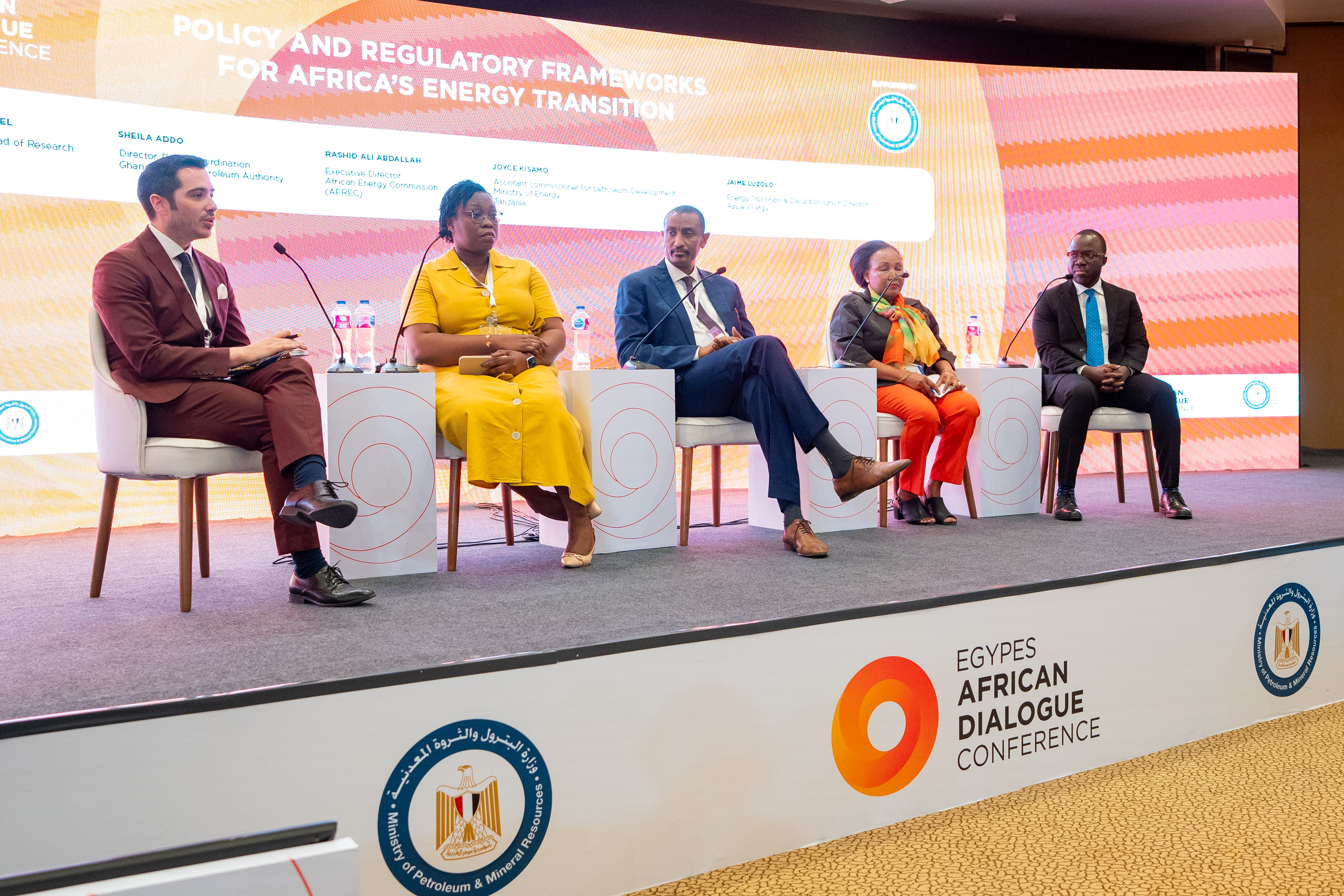Building a diversified and resilient energy mix in Africa: lessons from EGYPES 2024
For most African countries, gas and renewable energy represent an untapped potential to bridge the energy deficit on the continent and support industrialisation – providing the right policies and incentives are put in place to do so. But so far, access to energy has remained unreliable for African industries and households, and natural resources continue to be largely extracted and exported raw.
In contrast, Egypt offers another story.
The North African nation houses a globally competitive refining and petrochemicals industry, is one of Africa’s fastest growing renewable energy markets, and has built Africa’s biggest domestic gas market. As such, Egyptian policymakers and investors have relevant expertise and know-how that can support African energy ambitions on all those fronts.
To support a productive dialogue between North and sub-Saharan African energy markets, EGYPES 2024 hosted the first African Conference Dialogue, which brought together key African stakeholders including top government officials, financial institutions, economists and energy thought leaders to discuss the most pressing challenges related to policies, regulations, natural gas infrastructure development, and how Africa can leverage its rich energy resources to drive the continent towards a more prosperous and sustainable energy future. The conference unpacked several challenges and opportunities of growing intra-African energy cooperation, with the key takeaways summed up below.
Balancing domestic energy needs with lucrative export opportunities
Along with Libya, Egypt is the only gas market in Africa that consumes at home more gas than it exports overseas. In comparison, the rest of Africa is dominated by gas-rich nations that have developed their resources for the export market while their domestic economies remain energy-starved.

The Egyptian example demonstrates how that balance remains subject to geopolitical shifts, economic growth forecasts, and natural resources development plans. Egypt has gone from gas exporter to importer before exporting again. Its ability to juggle with its gas has relied on deepening domestic gas penetration while encouraging exploration to discover more gas reserves, including with the 2015 Zohr gas discovery, the biggest ever in the Mediterranean.
Equally important, Egypt shows the benefits of regional cooperation and plays an active role in the development of the Mediterranean gas hub. Pooling resources and promoting infrastructure sharing are proving beneficial to the growth of Egypt’s gas industry, and is a call to action for many on the continent where regional gas markets have remained extremely limited (West Africa Gas Pipeline, RompCo pipeline).
Growing domestic gas penetration requires policy coordination and public support
Along with Algeria, Egypt has Africa’s largest domestic gas market with gas penetration rates of over 90%. The country has succeeded in monetizing gas across its economy, from Egyptian kitchens and cars to energy-intensive industries that produce petrochemicals, fertilizers, steel, or cement.
The Egyptian gas market has grown on the back of significant public funding and investment from state-owned entities to provide the infrastructure required to produce, process, transport and distribute gas. A more recent wave of deregulation opened the sector for private sector participation, especially in piped gas networks and virtual pipelines development. In the Egyptian case, piped networks provided an opportunity to monetise domestic gas across households and industry, thereby displacing subsidised and imported LPG which came at a great cost to the government.
The situation is not far from the current energy security scenario of most sub-Saharan African nations who continue to import expensive and polluting gasoline, diesel and HFO instead of consuming gas for transport and cooking. But what Egypt tells us is that gas penetration is unlikely without well-thought and carefully plan policy and comes with large investment needs.
For sub-Saharan Africa, more policy certainty and direction is required around gas. In addition, constrained public finances call for the development of new business models that can attract private sector financing. With the Egyptian gas market reaching saturation, several private Egyptian companies could see an opportunity to venture south – with TAQA Arabia taking the lead on the development of CNG facilities in Tanzania and Mozambique already.
Incentivising private sector participation to expand energy infrastructure
Finally, Egypt is the only African country currently developing gigawatt-scale renewable energy projects, in a continent where clean energy remains largely undeveloped or limited to small ventures. Egypt has had one of Africa’s most successfully public-private partnerships (PPPs) approach, as demonstrated by the development of the 1.6 GW Benban Solar Park that attracted dozens of private sector developers and financiers into one of the world’s largest solar complexes.
Such private sector investment was made possible thanks to policy but also heavy public investments into transmission infrastructure. In Egypt for instance, the state-owned transmission company commissioned over 3,600km of 500 kV transmission lines over the past decade, paving the way for private sector investments into power generation. Most other African markets where public funding is constrained do not have that luxury and must find ways to involve private capital into the modernisation and expansion of their transmission & distribution networks, along with promoting decentralisation via wheeling or embedded ventures.
Energy Connects includes information by a variety of sources, such as contributing experts, external journalists and comments from attendees of our events, which may contain personal opinion of others. All opinions expressed are solely the views of the author(s) and do not necessarily reflect the opinions of Energy Connects, dmg events, its parent company DMGT or any affiliates of the same.






